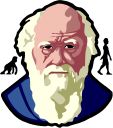The Restraints of Divine Love

Luke 2:7, John 18:12, John 20:25
There are two references in the Old Testament to a sacrificial victim being bound: in Genesis 22:9 Abraham is said to have "bound Isaac his son," and in Psalm 118:27 "bind the sacrifice with cords." These words seem to bring before us the power of divine love that would never turn aside from carrying out what that same love had determined. When the Lord Jesus said, "Father save me from this hour" He then referred to the divine cause that had brought Him to this hour.
In the above mentioned scriptures there are three things that, humanly speaking, held the Lord Jesus. As to His Godhead glory, nothing could hold Him in as He is omnipotent, but divine love had planned a pathway that had to be trodden that would end in the death of the cross.
Having laid aside His glory, or emptied Himself of the exterior display of His glory and having taken His place amongst men, He accepted the restrictions of humanity in order to bring the grace of God that had come into this world in His person to such as you and I. In order to become our high priest (according to Hebrews 2:14) He took part in that condition that was our natural lot, but apart from sin, in order that He might experience all the conditions that manhood involved. So when He was born perfectly naturally of a woman, He was "wrapped in swaddling clothes, and laid in a manger." Those swathing bands showed that He was truly a little child and needed to be kept warm and protected just as any newly born baby would need, but it speaks so much more. He was even then "God over all" but had come right where we were in order to lift us up to where He is eternally.
He had stooped into a place of dependence and, during His pathway for thirty years, He never once departed from that place. We read as to His youth that He was subject to His parents (Luke 2:51). At the banks of the Jordan at the beginning of His public ministry He went under the waters of baptism to take His place with a repentant remnant of Israel, and the heavens were opened and the Father’s voice declared His delight in that perfect pathway of thirty years. Being lead of the Spirit through the wilderness and for forty days being tempted of Satan, He never departed from dependence on God. He could have turned stone into bread, but you and I cannot. He could have cast Himself down from the temple without any harm to Himself, but that would not have been natural to men. He could have taken the kingdoms of this world from the hand of Satan, as many men since then have tried to do, but that was not an act of dependence upon God. On every temptation He only used what is available to us, the word of God.
During His pathway He walked on the sea; He commanded the wind and stilled waves; and He healed the sick, the lame and the blind; but every miraculous act was for the benefit of others, never for Himself. He hungered, He was weary, He wept. He felt compassion and sorrow, and at the end of His sinless life, endured pain and abuse. When offered something to ease the physical pain of crucifixion He refused it, because divine love had planned a pathway that would plumb the depths into which sin had brought us. Only thus could the power of God’s love be seen to be greater than all that sin had brought into this world.




